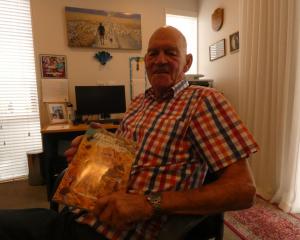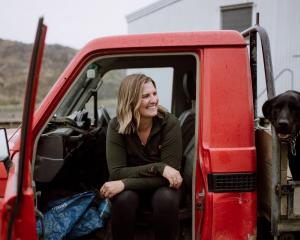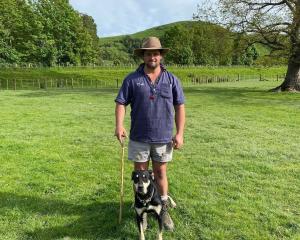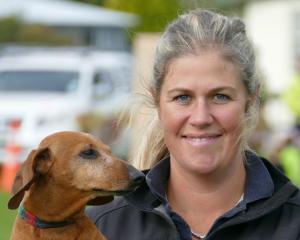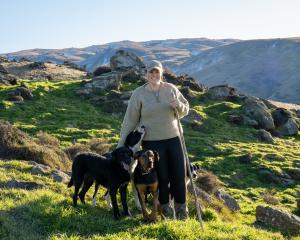
A couple are realising their dream of running a herd of pedigree Jersey cows on a dairy farm in Central Southland.
Dairy farmers Phil Garaway and Olivia Gunn milk cows at Brooklands Dairies, on the Oreti Plains, near Winton.
Ms Gunn said she was realising a girlhood dream of farming in the district.
Born and raised on a sheep and beef farm in Te Anau, she had fond memories of family trips to Invercargill and her father Graeme Gunn telling her Winton was "the land of milk and honey".
"The aim was always to find something around here to farm."
Mr Garaway said he was raised on a dairy farm in the Bay of Plenty and had always was wanted to own, breed and milk a Jersey herd.
As a contract milker, your main job was to milk and maintain the value of the cows and often breeding decisions were made by the farm owners, Mr Garaway said.
"I’ve been dairy farming all my life, but always milking someone else’s cows," he said.
When he heard Ashvale Jerseys stud owners Rodney and Jocelyn Dobson were selling their herd in Western Southland, he "pulled out all the stops" to buy 400 of their best.

Mr Garaway and Ms Gunn bought 210 cows and 90 heifers in June last year and about 100 of Mr Dobson’s 2022-born heifers in May this year.
"For a female line, you can’t ask for anything better," Mr Garaway said.
A target has been set for Brooklands to one day run about 700 pedigree Jerseys, which would make it one of the biggest Jersey studs in New Zealand, Mr Garaway said.
Brooklands Dairies had a strong link to the Dobson family as they had a business relationship with Rodney’s late brother John for nine years.
Before John converted Brooklands to a dairy farm, Rodney sent his heifers there to graze in the late 1990s.
During their stay on Brooklands, the herd won a Western Southland on-farm heifer competition.
Now progeny of those heifers lived on Brooklands.
"It feels like it has gone full circle," Ms Gunn said.
Their daughters, Annabelle, 8, and Emily, 6, hope to continue the winning way by showing their Jersey cattle at Calf Club.

She was a technician and he was a farm manager.
The couple moved east to run two Pāmu farms in Canterbury for a year.
"We worked really hard and did a good job, so we thought ‘why aren’t we doing this for ourselves’," Ms Gunn said.
They began contract milking a herd of mostly Holstein Friesian cows on Brooklands from the 2008-09 season.
John and Lindy Dobson owned half of the farm and a syndicate of five investors owned an equal share of the rest of the farm business.
Mr Garaway and Ms Gunn bought 10% of the business in 2010 and the five shareholders shared a 40% split.
The five shareholders wanted out and were bought out in 2015.
A new ownership structure had Mr Garaway and Ms Gunn owning 25%, Mr Garaway’s parents owning 5% and the John and Lindy Dobson increasing their shareholding to cover the rest.
Ms Gunn said she would be forever grateful to the Dobsons for investing more in Brooklands at the twilight of their farming career, which allowed them to stay on the farm, which they had worked hard to improve.

Lindy now lives in Winton and John passed away in 2017 after battling cancer, Ms Gunn said.
"He was a fantastic community man and family man and a good insightful farmer, who was excellent to bounce ideas off and really good when you were low, because he had seen it before. He always had support to offer. He was an excellent mentor for us and cancer is just a b******," Ms Gunn said.
The Dobson family sold their share of the farm in May this year and now Mr Garaway and Ms Gunn own about 70% of Brooklands Dairies.
Mr Garaway said he had previously bought Jersey bulls from Ashvale Jerseys to put over the black and white cows he milks in a bid to produce a smaller and more efficient animal.
The introduction of new genetics created a crossbred herd in the top 5% of the best producers in Southland and the top 10% nationally.
"No matter how good that herd was, it was only ever going to be a herd of crossbred cows," he said.
A plan was to retain some of the better crossbred cows and sell the rest to make room for more pedigree Jerseys.
Ms Gunn said a Jersey cow had "a lighter footprint and can still do the milksolids".
They like to have full control of their animal’s health and the feed provided to them.

Up to 1400 bales of baleage was made on farm to ensure they had quality feed to give the cows.
"I like seeing stock fat and fed," Ms Gunn said.
The paddocks required to make the baleage meant they ran fewer cows, but that helped to get through when dry conditions were biting.
Calving started on July 18.
"We were only dried off for three weeks so we are lucky to have understanding staff," Ms Gunn said.
Up to 350 calves would be reared this season.
All of the Jersey pedigree bulls would be sold, she said.
"You could sell them three times over."
The couple were offering 34 rising 1-year-old pedigree Jersey bulls on Bidr on October 7.

"We can’t be everywhere at once."
Selling the pedigree bulls meant fewer bobby calves were being put on the truck.
"We have very low wastage."
The wastage was expected to fall further as the pedigree Jersey numbers increased, which pleased everyone connected to Brooklands including shareholders in Queenstown.
Smart technology, such as smart collars, did not feature on farm, Ms Gunn said.
"We are pretty hands-on and low tech."
People told them their 25-year-old milking shed was too small and should be replaced.
"It still does the job and it is cheap to run," she said.
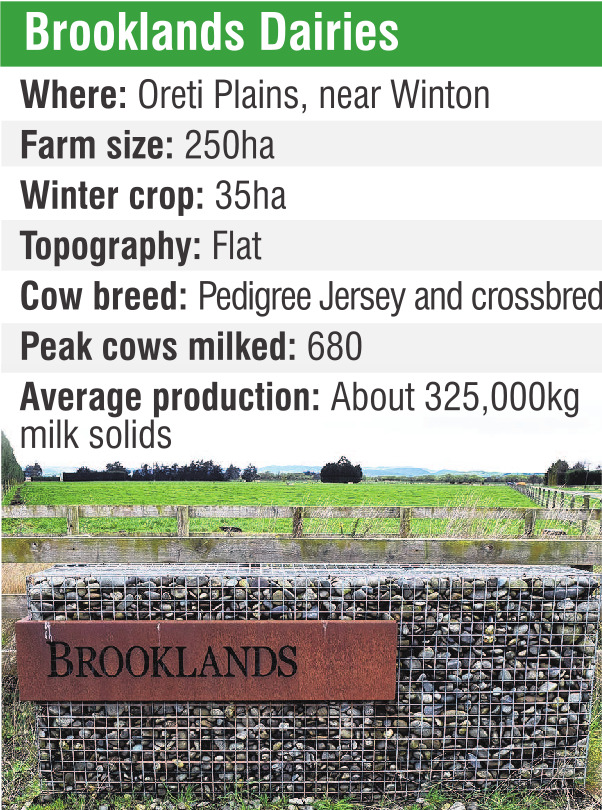
Ms Gunn said fencelines had been shifted and waterlines renewed.
"It is basically a whole new farm and it functions so much better."
They thanked their parents, Karen and Dennis Garaway, of Winton, and Joy and Graeme Gunn, of Te Anau, for being guarantors as they progressed in the dairy industry and installing a solid work ethic in both of them.
"They taught us how to work hard," Ms Gunn said.
A couple of seasons ago on Brooklands Dairies, each cow produced more than 500kgMS on average.
The target was now about 480kgMS because it was more profitable because it required spending less on inputs.
"We don’t chase solids per cow because this farm has to pay a dividend and be profitable — that’s our focus," Mrs Gunn said.
A target was breeding an efficient Jersey cow which produces between 1.1kg to 1.3kg of milksolids per 1kg of liveweight, Ms Gunn said.
"To get that sort of production out of a small animal is why we think they are fantastic."





